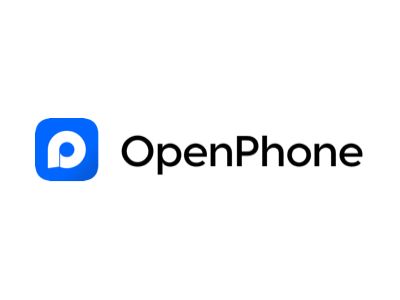Deepgram's Voice Agent API: A Game Changer in Conversational AI
June 19, 2025, 11:57 am

Location: India, Telangana, Hyderabad
Employees: 501-1000
Founded date: 2013
Total raised: $293.5M

Location: United States, California, Santa Clara
Employees: 11-50
Founded date: 2017
Total raised: $56M
In the fast-paced world of technology, the ability to communicate effectively is paramount. Enter Deepgram's Voice Agent API, a tool that promises to revolutionize how businesses engage with customers through voice. This innovative API is not just another cog in the machine; it’s a well-oiled engine designed for speed, efficiency, and flexibility.
Deepgram has launched its Voice Agent API, a unified voice-to-voice interface that integrates speech-to-text (STT), text-to-speech (TTS), and large language model (LLM) orchestration. This single API experience is a breath of fresh air for developers who often find themselves navigating a labyrinth of fragmented tools. With Deepgram, the complexity of building conversational agents is reduced to a streamlined process, allowing for natural and responsive interactions.
Imagine trying to build a house with mismatched tools. That’s what developers face when they stitch together various STT, TTS, and LLM services. Deepgram eliminates this hassle. Its Voice Agent API provides a cohesive solution, enabling developers to focus on what truly matters: creating engaging user experiences. The API is priced at a competitive $4.50 per hour, making it accessible for businesses of all sizes.
In today’s market, the demand for voice-first solutions is surging. Companies like Aircall, Jack in the Box, and StreamIt are already harnessing the power of Deepgram’s API to enhance customer engagement. They are not just saving costs; they are also reducing wait times and boosting customer loyalty. This is not just about technology; it’s about transforming the customer experience.
The challenge for many developers lies in the complexity of building voice agents. They often have to manage live audio streaming, detect when users finish speaking, and handle interruptions—all while maintaining a natural conversational flow. This is where Deepgram shines. Its Voice Agent API simplifies these processes, integrating real-time conversational dynamics into a single platform. Features like barge-in handling and turn-taking prediction are built-in, allowing developers to create seamless interactions without the headache of managing multiple vendors.
Control is another significant advantage of Deepgram’s offering. While many platforms provide limited customization, the Voice Agent API allows enterprises to maintain full control over orchestration and deployment. This means businesses can tailor their voice agents to meet specific needs without sacrificing performance. The API is built on Deepgram’s Enterprise Runtime, ensuring that every layer of interaction can be optimized for latency, responsiveness, and user experience.
Flexibility is key in today’s business landscape. Deepgram understands this. The Voice Agent API supports various deployment options, whether in the cloud, a virtual private cloud (VPC), or on-premises. This adaptability meets the diverse security and compliance requirements of enterprises. Additionally, teams can bring their own models, allowing for even greater customization while still benefiting from Deepgram’s orchestration capabilities.
Performance is not just a buzzword; it’s a necessity. Recent benchmark tests using the Voice Agent Quality Index (VAQI) reveal that Deepgram outperformed competitors like OpenAI and ElevenLabs. This means smoother, more responsive conversations with fewer interruptions and missed inputs. In a world where every second counts, this performance edge can make all the difference.
Cost-effectiveness is another feather in Deepgram’s cap. The flat rate of $4.50 per hour for using the complete voice stack simplifies budgeting and planning. For businesses looking to scale, this predictability is invaluable. Deepgram’s vertically integrated runtime optimizes every stage of the speech pipeline, minimizing infrastructure costs while maintaining real-time responsiveness. For teams that choose to integrate their own LLM or TTS models, Deepgram offers built-in rate reductions, further lowering the total cost of ownership.
As the demand for intelligent voice agents grows, so does the need for reliable, efficient solutions. Deepgram’s Voice Agent API stands out as a powerful tool for businesses looking to enhance their customer communication strategies. It combines technical prowess with affordability and flexibility, making it a smart choice for enterprises.
In conclusion, Deepgram’s Voice Agent API is not just a product; it’s a paradigm shift in how businesses approach voice technology. It empowers developers to create natural, responsive conversations without the usual headaches of integration. As companies continue to seek innovative ways to engage with customers, Deepgram is leading the charge, proving that the future of customer communication is indeed voice-first. With this API, the possibilities are endless, and the journey toward seamless voice interactions has just begun.
Deepgram has launched its Voice Agent API, a unified voice-to-voice interface that integrates speech-to-text (STT), text-to-speech (TTS), and large language model (LLM) orchestration. This single API experience is a breath of fresh air for developers who often find themselves navigating a labyrinth of fragmented tools. With Deepgram, the complexity of building conversational agents is reduced to a streamlined process, allowing for natural and responsive interactions.
Imagine trying to build a house with mismatched tools. That’s what developers face when they stitch together various STT, TTS, and LLM services. Deepgram eliminates this hassle. Its Voice Agent API provides a cohesive solution, enabling developers to focus on what truly matters: creating engaging user experiences. The API is priced at a competitive $4.50 per hour, making it accessible for businesses of all sizes.
In today’s market, the demand for voice-first solutions is surging. Companies like Aircall, Jack in the Box, and StreamIt are already harnessing the power of Deepgram’s API to enhance customer engagement. They are not just saving costs; they are also reducing wait times and boosting customer loyalty. This is not just about technology; it’s about transforming the customer experience.
The challenge for many developers lies in the complexity of building voice agents. They often have to manage live audio streaming, detect when users finish speaking, and handle interruptions—all while maintaining a natural conversational flow. This is where Deepgram shines. Its Voice Agent API simplifies these processes, integrating real-time conversational dynamics into a single platform. Features like barge-in handling and turn-taking prediction are built-in, allowing developers to create seamless interactions without the headache of managing multiple vendors.
Control is another significant advantage of Deepgram’s offering. While many platforms provide limited customization, the Voice Agent API allows enterprises to maintain full control over orchestration and deployment. This means businesses can tailor their voice agents to meet specific needs without sacrificing performance. The API is built on Deepgram’s Enterprise Runtime, ensuring that every layer of interaction can be optimized for latency, responsiveness, and user experience.
Flexibility is key in today’s business landscape. Deepgram understands this. The Voice Agent API supports various deployment options, whether in the cloud, a virtual private cloud (VPC), or on-premises. This adaptability meets the diverse security and compliance requirements of enterprises. Additionally, teams can bring their own models, allowing for even greater customization while still benefiting from Deepgram’s orchestration capabilities.
Performance is not just a buzzword; it’s a necessity. Recent benchmark tests using the Voice Agent Quality Index (VAQI) reveal that Deepgram outperformed competitors like OpenAI and ElevenLabs. This means smoother, more responsive conversations with fewer interruptions and missed inputs. In a world where every second counts, this performance edge can make all the difference.
Cost-effectiveness is another feather in Deepgram’s cap. The flat rate of $4.50 per hour for using the complete voice stack simplifies budgeting and planning. For businesses looking to scale, this predictability is invaluable. Deepgram’s vertically integrated runtime optimizes every stage of the speech pipeline, minimizing infrastructure costs while maintaining real-time responsiveness. For teams that choose to integrate their own LLM or TTS models, Deepgram offers built-in rate reductions, further lowering the total cost of ownership.
As the demand for intelligent voice agents grows, so does the need for reliable, efficient solutions. Deepgram’s Voice Agent API stands out as a powerful tool for businesses looking to enhance their customer communication strategies. It combines technical prowess with affordability and flexibility, making it a smart choice for enterprises.
In conclusion, Deepgram’s Voice Agent API is not just a product; it’s a paradigm shift in how businesses approach voice technology. It empowers developers to create natural, responsive conversations without the usual headaches of integration. As companies continue to seek innovative ways to engage with customers, Deepgram is leading the charge, proving that the future of customer communication is indeed voice-first. With this API, the possibilities are endless, and the journey toward seamless voice interactions has just begun.
